- Home
- Harlan Coben
Seconds Away Page 9
Seconds Away Read online
Page 9
No reply. I put the phone down and dressed, staring at it, waiting for it to vibrate. I was putting on my sneakers when it did.
Rachel: Yes. Where r u?
Me: Tryouts today.
Rachel: How did they go?
Me: Fine. Who cares? How are you??
Rachel: Better. Bullet skimmed my head but caused no damage. Being released tomorrow afternoon.
Immature as this sounded, I wanted to ask her if she'd been in touch with Troy, but a) it wasn't my business; and b) could you imagine anything more petty? Plus his speech came back to me:
That special girl who stole my heart is lying in a hospital bed, clinging to life.
The one who was being released tomorrow? Liar!
Rachel: Cand you stop by my house tomorrow after school?
Okay, I admit it--I felt a swelling in my chest and there was a smile on my face. School ended at three. Tryouts started at five.
Me: No problem.
Rachel: My dad will be home by 4. I don't want him to see you so we have to make it fast.
I didn't know what to make of that.
Me: Something wrong?
Rachel: Gotta go. Don't tell anyone I texted you. No one. See u tomorrow.
I stared at the phone another minute or two and then finished getting dressed. When I got outside, Coach Stashower was waiting for me.
"You have a minute, Mickey?"
"Sure, Coach."
Coach Stashower had thick curly hair and wore a polo shirt with the Kasselton Camel, our school mascot, on it. We moved into the PE teachers' office and he closed the door.
"You're some player, Mickey," he said with something approaching awe.
Not sure what else to say, I went with, "Thank you."
"I mean, this is only one day." He cleared his throat, his voice more serious now. "Tryouts last the rest of the week. It may have been just a fluke."
I didn't say anything. I knew. He knew. Again, I don't say this to sound cocky or full of myself. I say it because I know. I hate when the gorgeous girl always pretends she has no idea she's pretty. It is dishonest. That kind of false modesty can be as annoying as bragging. So I didn't say anything--there was no need because it all gets said on the court--but Coach Stashower knew that it wasn't a fluke.
"Coach Grady is going to be working with the varsity for another hour, and he didn't want you to wait around for him. He also needs to think about some stuff." Coach Stashower stopped then, unsure how to continue. "Anyway, he asked if you can come to his office tomorrow at lunch. Can you make it?"
I tried very hard not to smile. "Yes, Coach."
"Okay then. Go home and get some rest."
CHAPTER 20
But I had no interest in rest. I was still flying high.
What I really wanted to do was play more basketball. I realize that this may sound obvious, but the more you play, the better you get. Plus I loved it.
I checked the clock. The pickup games down in Newark might still be going on. I could grab the next bus and be downtown in half an hour.
I texted Tyrell Waters, a junior at Newark's Weequahic High School, who lived on those courts: Games still on?
I realized that I probably wouldn't get an answer--Tyrell could be playing right now--but I got one immediately.
Tyrell: Yep, come on down.
I caught the bus at the Northfield Avenue stop. The bus was filled with weary housekeepers, nannies, and various domestics, who always gave this white boy curious looks. The trip from the leafy suburb of Kasselton to the grimier streets of Newark was only seven miles in distance but much farther in pretty much every other way.
The pickup basketball games were played on cracked asphalt with rusted rims. I started coming down here about a month ago because this is where the best basketball is played. You can call me prejudiced for that, but again it's like that false modesty thing. If you want to get better--and keep your game under wraps until tryouts--these urban streets were the place to go.
Tyrell spotted me coming toward him. He waved and gave me a smile. "I sat out a game so we could be on the same team."
"Thanks."
I was pretty much the only guy from the well-to-do suburbs who made this trek on his own. When I first showed up, I had been greeted by plenty of doubt and even derision, but again that was the beauty of sports. Once we got on the court, corny as this might sound, all that stuff fell to the side. I've played basketball throughout the world, most of the time in countries where I didn't know the language. It didn't matter. You bond on the court. You all speak or at least understand the same language. The other nonsense just fades away.
"So what's going on?" Tyrell asked.
"First day of tryouts."
"How did it go?"
"Pretty well."
Tyrell smiled. "Yeah, I bet. Hey, Weequahic plays Kasselton this year. That should be a fun game."
"I look forward to it."
On the court, someone made a dunk to give his team the victory. There were always spectators at the pickup games. On the right, a group of homeless guys were cheering and jeering and placing "bottle bets" on the games. Various coaches and parents stood closer in, leaning against the fence, scrutinizing every move.
Pickup basketball is simple: winners stay on, losers sit. No one likes to sit, so the games become very competitive. Tyrell is a great point guard. He sees the entire court with just a quick glance. He fed me two down low, and we jumped out to a quick lead. We cruised from there. I don't remember how many games we played or how much time it took. It was all just a wonderful escape. For a little while I didn't think about my father or my mother or Rachel or any of it.
Darkness crept in, so someone turned on the floodlights. We kept playing. It was getting late, but I didn't really care. After we won the most recent game--Tyrell drove the length of the court for the final basket--I checked my phone. Uncle Myron had called three times and texted asking where I was. I figured it was best to call him back.
"Where are you?" he asked.
"I'm at the courts in Newark."
"Tryouts weren't enough today, huh?"
This was the one thing Myron totally got. "I just wanted to get a little more playing in," I said.
"So how did it go today?" "Fine."
He obviously wanted details, but like I said, it is always better to let your game do the talking. Myron probably understood that too.
"I'm going to be home late," Myron said. "Angelica is filming tonight and I need to be there. Will you be okay?"
Why did I feel such relief when I knew he wouldn't be around?
"I'll be fine, don't worry."
We said we'd stay in touch and hung up. Tyrell and I managed to scrape up enough players for one more game, but then it was pretty much over for the night. Guys said good-bye and drifted away until it was only Tyrell and me left. The two of us shot around and shared some laughs. I beat him in a game of horse by only one letter, and he immediately demanded a rematch. We started breaking out trick shots and then, because this was the other magic of sports, we started talking for real.
"My friend was shot," I told him. "Her mother was killed."
Tyrell stopped. "For real?"
"Yes."
He asked for details. I told him about Rachel, about Ema and Spoon, about Troy's speech at practice, about everything that happened at the Plan B nightclub.
When I finished, Tyrell shook his head and said, "Man, you have a way of finding trouble."
"I like to think trouble finds me."
"And I like to think every girl in school wants my bod," Tyrell said. "Doesn't make it so. Anyway, my old man told me you were involved in all those arrests at that nightclub. He didn't know what to make of it either."
I should have figured as much. Tyrell's father worked as an investigator for Essex County.
"In fact, Dad probably would've been the one to interview you, except he's working on this big drug ring in your hometown."
As if on cue, we heard a voice
say, "Good to see you guys working on your game."
Tyrell's father smiled as he approached. His jacket was off, so I could see the badge and gun hanging from his belt. Mr. Waters gave his son a hug. If Tyrell was embarrassed about it, he didn't show it. He hugged his father back, and I felt a pang of envy.
Mr. Waters turned to me. "Hello, Mickey."
"Hello, Mr. Waters."
"How are things?"
Last time I was down here, Mr. Waters had driven me home. He'd seen Shaved Head following me and had grown concerned. When we reached Myron's house, he gave me his card and told me to call in case of trouble.
"I'm fine."
He kept his eyes on me. I realized that he was a county investigator, probably working in the same division as Investigator Dunleavy. I wondered whether he knew that I'd been questioned about the shooting at the Caldwell house.
"What do you say I take you guys out for a quick bite and then I can drive Mickey home?"
"Thanks for the offer," I said, "but I can take the bus."
"It's no hassle. I have to be in Kasselton for a case anyway. It'll be good to have the company."
That was what he had said last time, but there had been something of an ulterior motive. Of course, the ulterior motive was that he'd been worried about me.
"It's late and I'm starving," Mr. Waters said. "What do you boys say?"
Tyrell turned to me. "Come on. You gotta eat, right?"
Hard to argue with that logic. We headed to Hobby's Deli and sat in the corner. All three of us ordered triple-decker sandwiches the approximate size of a catcher's mitt. It was the best sandwich I had ever eaten. On a scale of one to ten, if this was a ten, the next best sandwich I'd had was a three.
"Cops always know the best places to eat," Mr. Waters explained.
He asked us about our day, about our studies, about our basketball. He listened and I could see how much he was enjoying this. I was enjoying it too, but that pang never left. He dropped Tyrell at their two-family house on Pomona Avenue. Tyrell kissed his father's cheek before he got out. Another pang.
Tyrell fist-bumped me and said, "Kick that Troy guy's ass."
"Will do."
Mr. Waters waited until Tyrell was inside before driving again. Neither one of us said anything for a few minutes. Then Mr. Waters broke the silence. "I hear you were questioned by my colleague Investigator Dunleavy."
Just as I'd suspected. "Yes, sir."
But hearing her name reminded me of something else--in Rachel's hospital room, hiding under the bed, Chief Taylor's voice . . .
A homicide detective named Anne Marie Dunleavy will be coming by to interview you. Don't feel obligated to talk to her before we speak again, okay?
What had that been about?
"Everything okay, Mickey?"
"Fine, yes. I'm a friend of Rachel Caldwell's, that's all."
"I see."
"She and I talked on the phone before the shooting," I said.
Mr. Waters nodded, both hands on the wheel, his eyes straight ahead. "It's a terrible thing. What happened to her mother. Gunned down like that."
I said nothing.
"Did you know her?" he asked.
"Rachel's mother?"
"Yes."
"No, we never met."
"How's Rachel holding up?" he asked.
I squirmed in my seat. I didn't want to tell him that I'd sneaked into the hospital, but I didn't want to lie either. "She seems better."
"That's good. How about Henry?"
"Who?"
"Henry Caldwell. Her father." We hit a traffic light and came to a stop. Mr. Waters turned and met my eye. "How's he doing?"
"I don't know Mr. Caldwell."
"No?" Mr. Waters arched an eyebrow. "I just figured, you being such good friends with Rachel and all, that you'd have met one of her parents."
"I haven't," I said softly. "And I don't really know her all that well."
"But you talked on the phone right before the shooting."
This was sounding less and less like a casual conversation. "We were partners on a history project," I said.
He waited. When I didn't add anything else, Mr. Waters said, "And you two were both involved in that mess at the Plan B nightclub."
"Yes," I said.
We pulled up to Myron's house. Mr. Waters turned off the engine. "Mickey?"
"Yes?"
"Are you sure there's nothing you need to tell me?"
"I don't know what you mean."
"No? First, you have some weird bald dude following you in a black car. Then you get involved in a big-time arrest at an adult nightclub. And now, well, this shooting in your hometown."
I liked Mr. Waters. I really did. I also thought that he probably had my best interests in mind. But I didn't know what to say or even where to start. Too much had gone on in the past week, and I had been warned by Bat Lady not to tell anyone. Even if I defied her, what exactly would I say?
"Mickey?"
"I really don't know anything more," I said.
He rubbed his face for a moment. "You still have my card?"
"Yes."
"Put my number on your speed dial. I have a feeling you're going to need it."
CHAPTER 21
I didn't have homework, so I went online and did an image search for both Hans Zeidner and the Butcher of Lodz. Plenty of terrifying photographs from the Lodz ghetto popped up. They were all in stark black and white. I would say that they were like something out of a nightmare, but I don't even think my worst dreams could compete with this. Many of the photos featured frightened and starving children. I thought about Lizzy Sobek. I wondered what her life in that ghetto must have been like.
There was only one photograph that may have been the Butcher of Lodz.
It was, I thought, the most horrible photograph I had ever seen. It had been taken in November 1941 in the Baluty Marketplace in Lodz. Eighteen Jews were executed by hanging in that one day for trying to escape. In this photograph you could see three of them dangling by the neck from what looked like a child's swing set. In the background, you could see the crowd somberly gathered--even children--forced to watch as a warning. And there, standing right next to the dead bodies, with his back to the camera, was a man in a Waffen-SS uniform.
It was suddenly hard to breathe.
I shut down the computer. That had been it--there had been no photographs of the Butcher's face.
So how had Bat Lady gotten one?
It always came back to her, didn't it? Bat Lady had started me down this road the first time I saw her, opening up that door, stepping out with her long gray hair and white gown, pointing that bony finger at me . . .
Mickey? Your father isn't dead. He is very much alive. . . .
Hold the phone.
I remembered something else now. When I'd seen Ema earlier today, she somehow looked different to me. I couldn't put my finger on it, but now . . .
I grabbed my cell phone and texted Ema. I just said R u there? in case, I don't know, someone else was home and he checked her texts and got angry if it was someone asking more personal questions.
Ema replied quickly: what's up?
Me: Going to Bat Lady's house. Wanna come?
Ema: can't.
That was odd. Usually Ema could get out at all hours.
I typed: Everything OK?
Ema: fine. let's go after school tomorrow.
I was about to tell her about Rachel getting out of the hospital, but then I remembered how Rachel had insisted: Don't tell anyone I texted you. No one.
Could she have meant Ema too? I don't know, but the words no one seemed pretty clear.
To Ema, I typed in: Can't.
I was going to ask her about what I noticed, about what struck me as different with her appearance, but I wanted to check it out in person. It could wait.
Still thinking about the rumors Spoon had heard, I added: R you OK?
Ema: fine. u?
Me: Fine.
Ther
e was a pause and then Ema wrote: this is an awesome text exchange.
I laughed out loud.
Ema: r u going to Bat Lady's tonight without me?
I thought about it, but not for very long. I couldn't just sit here. I had to act: Yes.
There was a pause and then Ema wrote: b careful. I've got a bad feeling.
CHAPTER 22
Nobody knows when the Bat Lady first moved to town.
I'm sure that there were housing records and someone could probably figure it out, but if you ask anyone in Kasselton, they will tell you that she has always been in that dark, dilapidated house. Even Uncle Myron remembers the creepy old Bat Lady from his childhood. He told me that kids used to hurry past her house, even way back when he was a kid. He told me that one day, when my own father was twelve or thirteen, he had gone into Bat Lady's house on a dare . . .
. . . and that when my father came out, he was never the same.
I believed that. I had also gone into that house. I had also met Bat Lady. And now I'm not sure that I will ever be the same again.
The rumors that struck fear into the children about Bat Lady were, I knew, completely bogus. Legend had it that she kidnapped children. Some nights, the locals say, if you walked past her house slowly, you could actually hear their cries. Some claimed to see them, dozens of children locked up in her house, ready to be . . . well, what? Killed, abused, eaten . . .
Or maybe, just maybe, they were rescued.
It was pitch-black by the time I made it to Bat Lady's house. The wind howled. It always seemed to pick up when you crossed her property. I'm sure that was just in my mind (and the minds of pretty much everyone else who walked past here), but the willow tree swayed and even from where I stood on the sidewalk, I could hear the porch creak.
All the lights were out, except for a lone lamp in the upstairs bedroom. That was a good sign. Last time I had stopped by, when no one answered the door, the light had been off.
Bat Lady must be back.
The night was silent, almost too quiet, as I approached the house. I knocked on the door. The sound echoed. I felt a chill. I listened for movement. Nothing. I knocked again and pressed my ear against the door. Silence. And then, suddenly, the silence was broken.
By music.
I jumped back. I remembered now that old record player, the one that played vinyls, in her living room. It was hard to picture a weird old lady listening to the albums I'd found stacked there: the Who's My Generation, the Beach Boys' Pet Sounds, the Beatles' Abbey Road, and the album that was currently playing, the one she always seemed to play, Aspect of Juno by HorsePower.

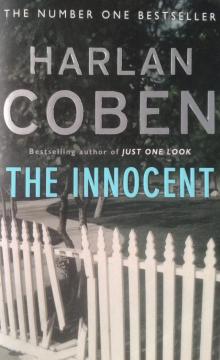 The Innocent
The Innocent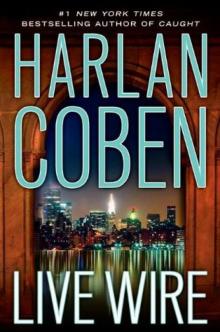 Live Wire
Live Wire Play Dead
Play Dead Drop Shot
Drop Shot Seconds Away
Seconds Away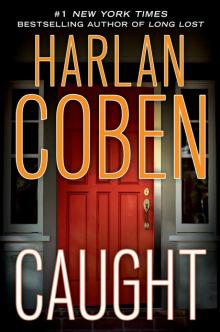 Caught
Caught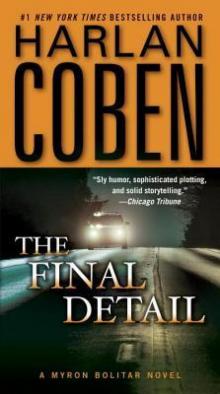 The Final Detail
The Final Detail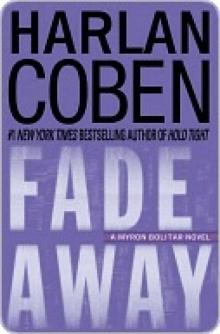 Fade Away
Fade Away Home
Home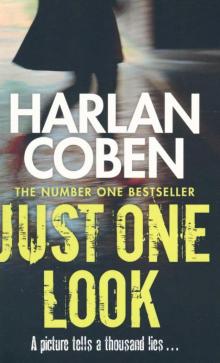 Just One Look
Just One Look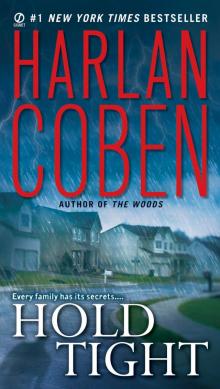 Hold Tight
Hold Tight Fool Me Once
Fool Me Once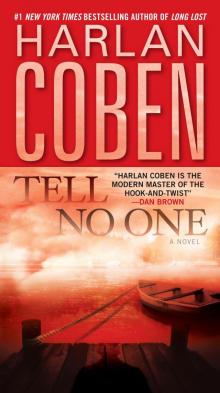 Tell No One
Tell No One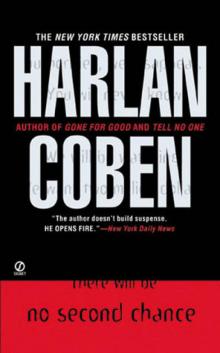 No Second Chance
No Second Chance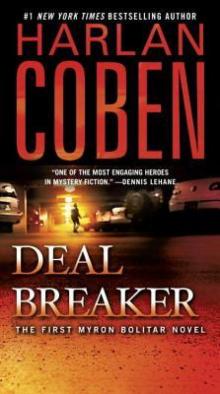 Deal Breaker
Deal Breaker Long Lost
Long Lost One False Move
One False Move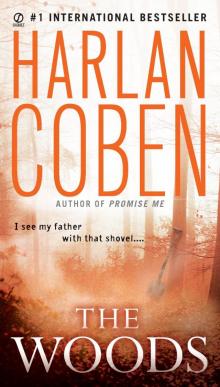 The Woods
The Woods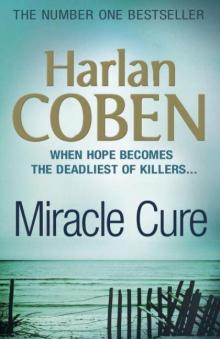 Miracle Cure
Miracle Cure Found
Found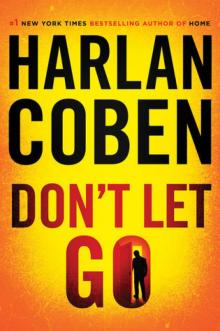 Don't Let Go
Don't Let Go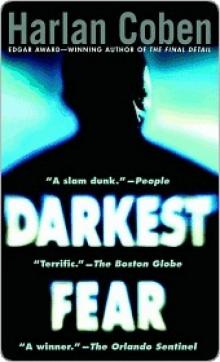 Darkest Fear
Darkest Fear The Stranger
The Stranger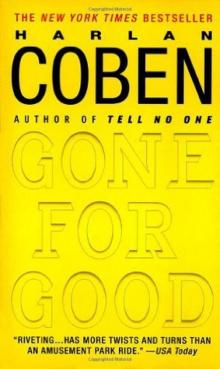 Gone for Good
Gone for Good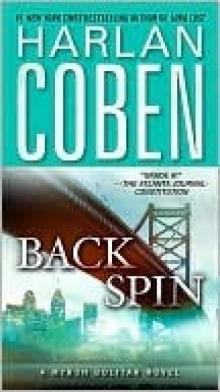 Back Spin
Back Spin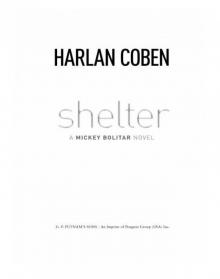 Shelter
Shelter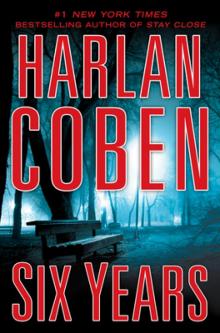 Six Years
Six Years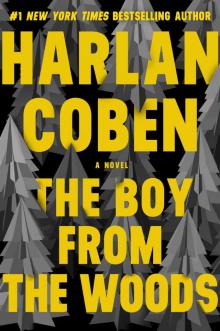 The Boy from the Woods
The Boy from the Woods Missing You
Missing You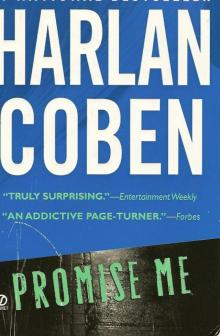 Promise Me mb-8
Promise Me mb-8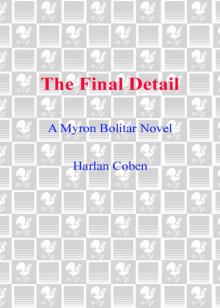 The Final Detail: A Myron Bolitar Novel
The Final Detail: A Myron Bolitar Novel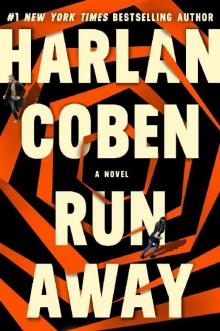 Run Away
Run Away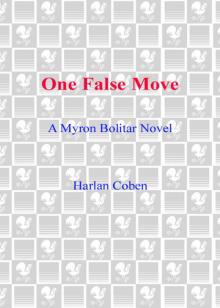 One False Move: A Myron Bolitar Novel
One False Move: A Myron Bolitar Novel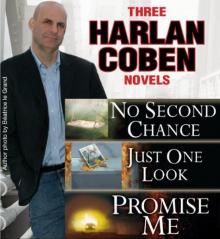 Three Harlan Coben Novels
Three Harlan Coben Novels the Woods (2007)
the Woods (2007) Tell No One (2001)
Tell No One (2001) the Innocent (2005)
the Innocent (2005)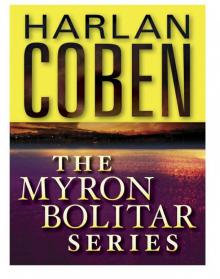 The Myron Bolitar Series 7-Book Bundle
The Myron Bolitar Series 7-Book Bundle Gone for Good (2002)
Gone for Good (2002) Caught (2010)
Caught (2010) Hold Tight (2008)
Hold Tight (2008)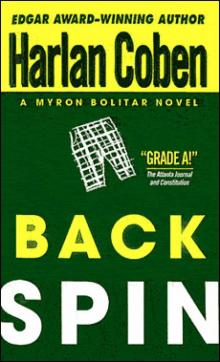 04 - Back Spin
04 - Back Spin Miracle Cure (1991)
Miracle Cure (1991) Harlan Coben 3 Novel Collection
Harlan Coben 3 Novel Collection Just One Look (2004)
Just One Look (2004)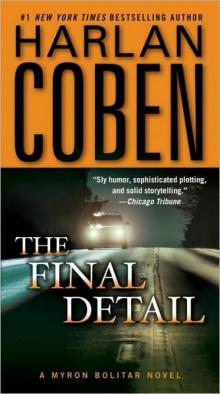 The Final Detail mb-6
The Final Detail mb-6 Play Dead (2010)
Play Dead (2010)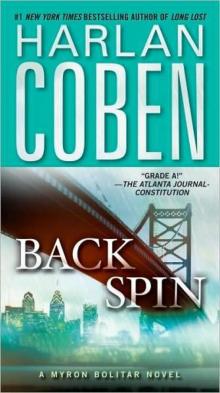 Back Spin mb-4
Back Spin mb-4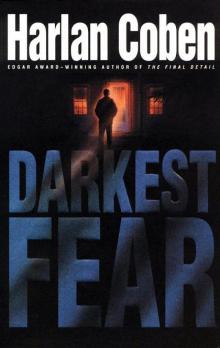 Darkest Fear mb-7
Darkest Fear mb-7